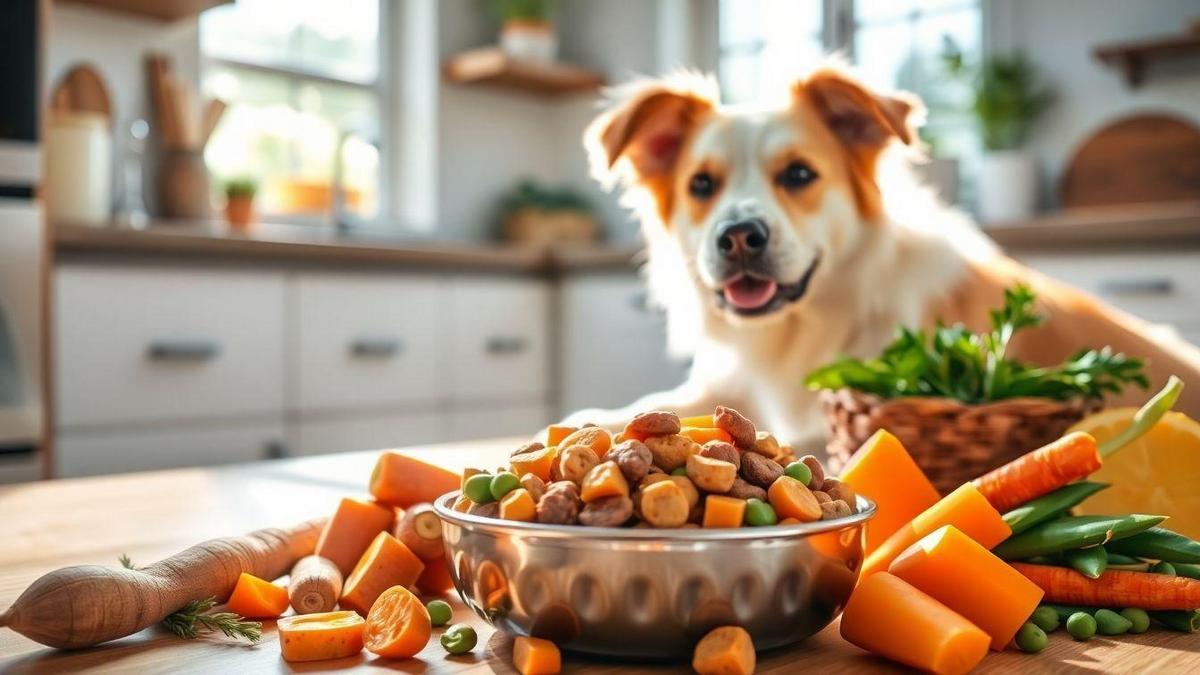When it comes to Nutrition Tips for Senior Dogs with Special Needs, we need to get it right! Our furry friends age just like we do, and that means their dietary needs change. From the right foods to keep them healthy to understanding their unique health issues, we’ve got a lot to cover. Let’s dive into how we can give our senior pups the best nutrition tailored just for them, ensuring they live their golden years in comfort and joy.
Important Points to Remember
- Choose high-quality dog food that meets our senior dog’s needs.
- Pay attention to our dog’s specific health issues.
- Add supplements to support our dog’s health.
- Keep our dog hydrated with fresh water.
- Consult our vet for personalized advice.

Understanding the Unique Needs of Senior Dogs
As our furry friends age, they go through changes that require us to pay special attention to their needs. Senior dogs are like wise old souls, and they deserve the best care we can give them. Let’s explore why they require special nutrition, the common health issues they face, and how we can tailor their diets accordingly.
Why Senior Dogs Require Special Nutrition
When our dogs reach their golden years, their bodies might not process food the way they used to. Senior dogs often need fewer calories but more nutrients. We want to keep them healthy, so it’s crucial to focus on high-quality ingredients.
Some important points to consider are:
- Lower calories: Older dogs tend to be less active, so they don’t need as many calories.
- More protein: Protein helps maintain muscle mass, which is vital as they age.
- Healthy fats: Omega-3 fatty acids can help with joint health and cognitive function.
Common Health Issues in Aging Canines
As our dogs grow older, they may face various health issues. Here are some common ones we might encounter:
- Arthritis: Many senior dogs suffer from joint pain.
- Dental problems: Their teeth may weaken, leading to difficulty eating.
- Kidney disease: This is common in older dogs and can affect their overall health.
Understanding these issues helps us provide better care. For further insights, check out our article on common health issues in senior dogs.
Tailoring Diets for Specific Health Conditions
When it comes to our senior dogs, we might need to adjust their diets based on specific health conditions. Here’s a simple table to help us understand how to tailor their nutrition:
| Health Condition | Dietary Needs |
|---|---|
| Arthritis | Anti-inflammatory foods, joint supplements |
| Dental Issues | Soft food, dental chews to maintain oral health |
| Kidney Disease | Low protein, high-quality ingredients |
By being mindful of what our senior dogs need, we can help them live their best lives.
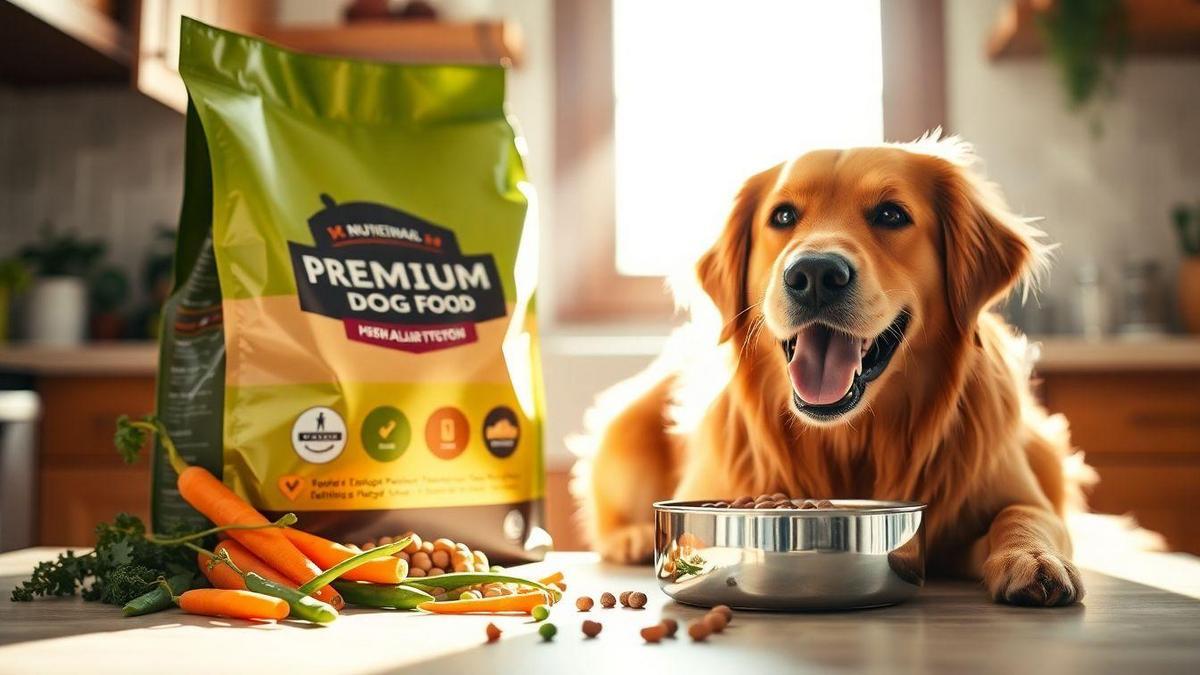
Best Foods for Aging Dogs
As our furry friends get older, their nutritional needs change. We want to make sure our senior dogs stay healthy and happy, and the right food plays a big role in that. Let’s explore the best foods for our aging pups!
Nutrient-Rich Ingredients for Senior Dogs
When it comes to feeding our senior dogs, we should look for nutrient-rich ingredients. Here are some key components to keep in mind:
- High-Quality Protein: Helps maintain muscle mass. Look for chicken, fish, or lamb.
- Healthy Fats: Omega-3 fatty acids support joint health. Ingredients like fish oil or flaxseed are great choices.
- Fiber: Aids digestion and helps with weight management. Sweet potatoes and brown rice are excellent sources.
- Antioxidants: These can boost the immune system. Blueberries and spinach are packed with them.
- Glucosamine and Chondroitin: Good for joint health. Some foods have these added.
Top Brands for Senior Dog Nutrition
Choosing the right brand can be a bit tricky, but we’ve got you covered! Here’s a table of some top brands that offer great nutrition for our senior dogs:
| Brand | Key Features |
|---|---|
| Blue Buffalo | Real meat, no artificial additives |
| Hill’s Science Diet | Tailored for specific health needs |
| Royal Canin | Breed-specific formulas available |
| Nutro | Natural ingredients with no fillers |
| Wellness | Grain-free options with high protein content |
How to Choose the Right Food for Your Senior Dog
Choosing food for our senior dogs doesn’t have to be overwhelming. Here are some tips to help us make the best choice:
- Consult Your Vet: Always a good first step. They can help us understand our dog’s specific needs.
- Read Labels: Look for high-quality ingredients. Avoid foods with fillers and artificial ingredients. For more on this, see our guide on understanding dog food labels.
- Consider Special Needs: If our dog has health issues like arthritis or diabetes, we may need to choose specialized diets.
- Watch for Allergies: Some dogs may have food sensitivities. Keep an eye out for any reactions. For further information, visit our article on common dog food allergies.
- Transition Slowly: If we’re changing foods, do it gradually over about a week to avoid tummy troubles. Learn more about safe transitions in our post on transitioning your dog to a new diet.
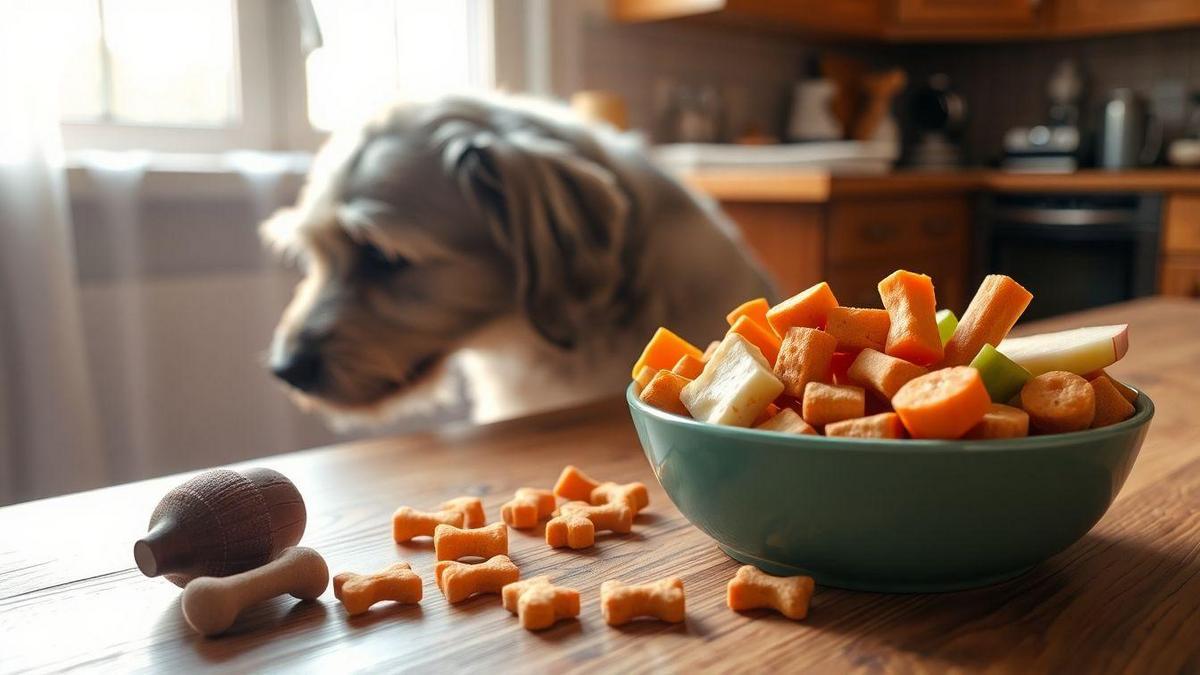
Healthy Snacks for Elderly Dogs
Benefits of Treats for Senior Dogs
When it comes to our senior dogs, treats can play a big role in their happiness and health. These little snacks can lift their spirits and give them something to look forward to. Plus, they can help with bonding time! Treats can also be a great way to encourage our older pups to stay active. A tasty reward can motivate them to take a few extra steps during a walk or playtime.
Easy Homemade Snack Ideas
Making treats at home can be fun and rewarding! Here are a few simple ideas that we can whip up in no time:
- Peanut Butter Biscuits: Mix whole wheat flour, oats, and a bit of peanut butter. Roll into small balls and bake until golden.
- Pumpkin Bites: Combine canned pumpkin, oats, and an egg. Bake them into bite-sized pieces.
- Sweet Potato Chews: Slice sweet potatoes and bake them until they’re chewy.
These snacks are not just tasty; they can also be healthy for our furry friends! For more ideas on homemade options, check our article on homemade dog food.
Ensuring Treats Are Nutritious and Safe
When we’re making treats, we want to keep our senior dogs’ health in mind. Here’s a quick table to help us remember what to look for:
| Ingredient | Safe for Dogs? | Notes |
|---|---|---|
| Whole Wheat Flour | Yes | Good source of fiber |
| Peanut Butter | Yes | Check for xylitol-free! |
| Oats | Yes | Great for digestion |
| Sweet Potatoes | Yes | Packed with vitamins |
| Chocolate | No | Toxic to dogs |
| Onions/Garlic | No | Harmful in large amounts |
Always check the ingredients to make sure they’re safe for our senior dogs. If we’re unsure, it’s best to consult with a vet. After all, we want to keep our furry companions happy and healthy!
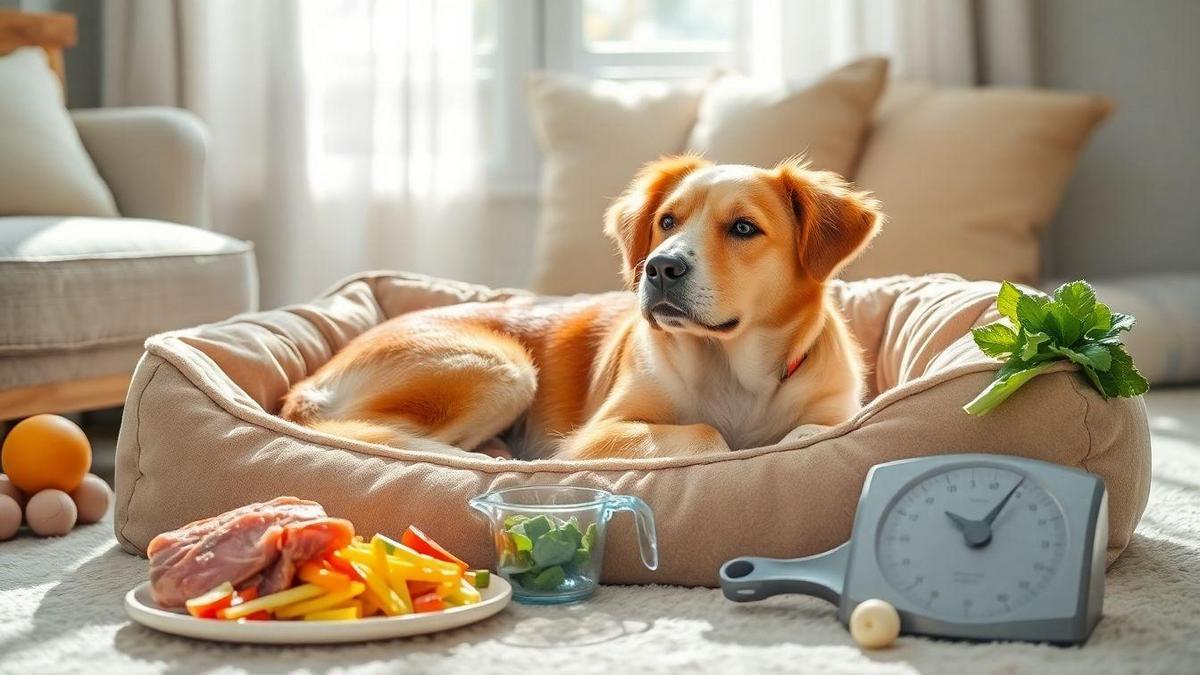
Managing Weight in Senior Dogs
Importance of Weight Control
When we think about our senior dogs, weight control is a big deal. Just like us, as dogs get older, they can gain weight more easily. This extra weight can lead to health problems like diabetes, joint issues, and heart disease. Keeping our furry friends at a healthy weight helps them live longer and feel better. It’s like giving them a little extra pep in their step!
Tips for Portion Control and Feeding
Now, let’s talk about how we can help our senior dogs manage their weight. Here are some simple tips for portion control and feeding:
- Measure Food: Use a measuring cup to serve their meals. This helps us avoid overfeeding.
- Scheduled Feeding: Stick to a feeding schedule. Feeding them at the same times each day can help regulate their appetite.
- Healthy Treats: Choose low-calorie treats. We can give them carrots or green beans instead of high-calorie snacks.
- Water Intake: Always have fresh water available. Sometimes dogs eat when they’re actually just thirsty!
Here’s a quick table to help us visualize the portion sizes based on our dog’s weight:
| Dog Weight (lbs) | Daily Food Amount (cups) |
|---|---|
| 5-10 | 1/2 – 1 |
| 11-20 | 1 – 1 1/2 |
| 21-40 | 1 1/2 – 2 1/2 |
| 41-60 | 2 1/2 – 3 1/2 |
| 61-80 | 3 1/2 – 4 1/2 |
Recognizing Signs of Overweight in Dogs
So, how do we know if our dog is overweight? Here are some signs to watch for:
- Rib Check: We should be able to feel their ribs without too much pressure. If we can’t, they might be carrying a few extra pounds.
- Waistline: Look for a noticeable waist when we view them from above. If their belly is sticking out, it’s a sign they may need to shed some weight.
- Energy Levels: If our dog seems less active or struggles to keep up during walks, it might be time for a diet adjustment.
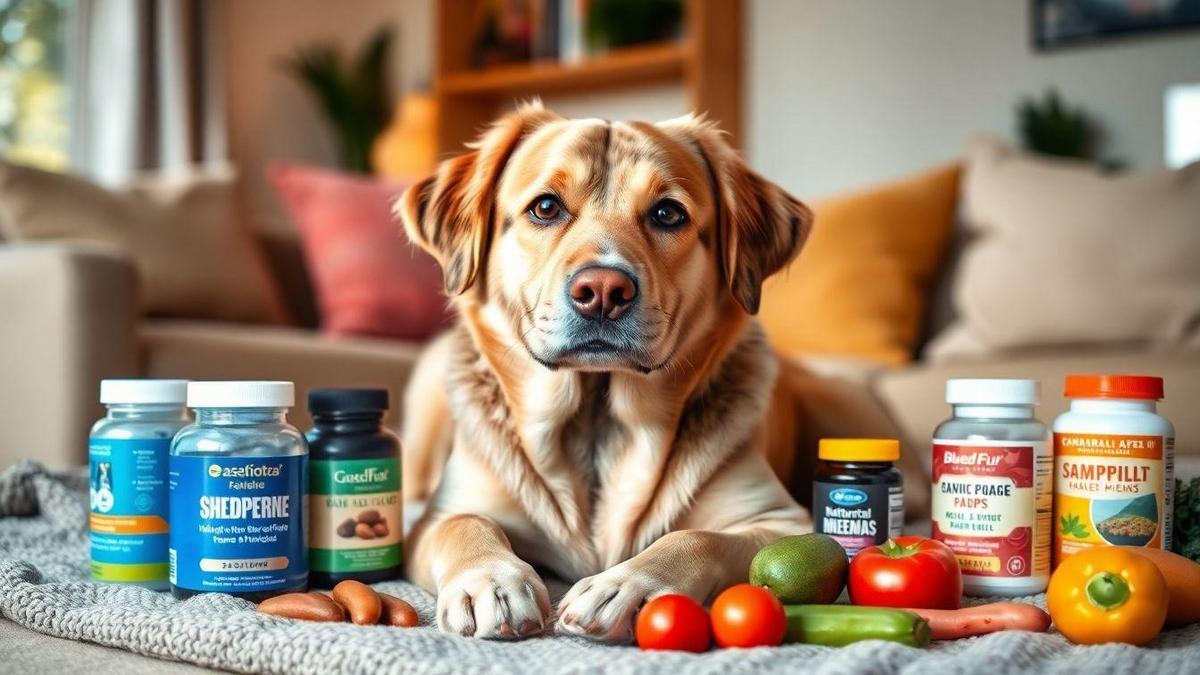
Supplements for Senior Dogs
Common Supplements for Aging Canines
When our furry friends start to age, they may need a little extra help to stay spry. Supplements can be a great way to support their health. Here are some common ones we might consider:
- Glucosamine and Chondroitin: These help keep joints healthy and reduce stiffness.
- Omega-3 Fatty Acids: Found in fish oil, these can promote a shiny coat and support heart health.
- Antioxidants: Vitamins C and E can help fight off free radicals, which can be harmful to our dogs’ cells.
- Probiotics: These can aid digestion and improve gut health, which is important as our dogs age.
How Supplements Can Improve Health
Adding supplements to our senior dogs’ diets can make a world of difference. They can help with:
- Joint Pain: Many older dogs suffer from arthritis. Supplements can ease their discomfort and help them move around more easily.
- Cognitive Function: Just like us, dogs can experience memory loss as they age. Some supplements can help keep their minds sharp.
- Skin and Coat Health: As our dogs get older, their skin can become dry. Omega-3s can help keep their skin moisturized and their coat shiny.
Here’s a quick look at how these supplements can benefit our dogs:
| Supplement | Benefit |
|---|---|
| Glucosamine | Eases joint pain |
| Omega-3 Fatty Acids | Supports skin and heart health |
| Antioxidants | Protects cells from damage |
| Probiotics | Aids digestion |
Consulting with Your Vet About Supplements
Before we dive into the supplement pool, it’s best to have a chat with our vet. They can help us figure out what our senior dogs really need. Here are a few things to keep in mind:
- Health Conditions: Some dogs may have health issues that affect which supplements are safe for them.
- Dosage: Our vet can guide us on how much to give and how often.
- Interactions: Certain supplements can interact with medications. So, it’s crucial to get professional advice.
In the end, our goal is to keep our senior dogs happy and healthy. With the right supplements, we can help them enjoy their golden years to the fullest. For more on this topic, check out our article on the role of supplements in dog nutrition.
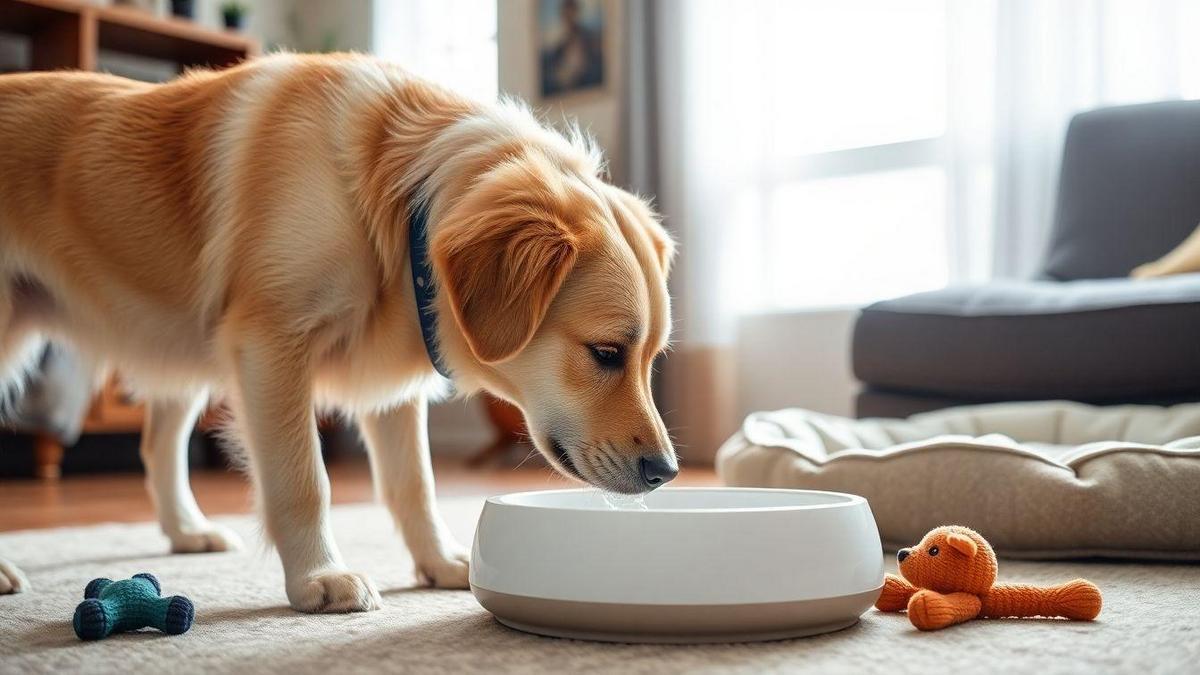
Hydration Tips for Older Dogs
Importance of Staying Hydrated
When it comes to our senior dogs, hydration is super important! As our furry friends age, they may not drink as much water as they used to. This can lead to health issues like kidney problems or urinary tract infections. Keeping our dogs hydrated helps their organs function properly, supports digestion, and keeps their skin healthy. We want our pups to feel their best, and drinking enough water is a big part of that!
Signs of Dehydration in Senior Dogs
We need to be on the lookout for signs that our older dogs might be dehydrated. Here are some things to watch for:
| Signs of Dehydration | What to Look For |
|---|---|
| Dry Gums | Gums should be moist, not sticky. |
| Lethargy | Less energy than usual. |
| Loss of Skin Elasticity | Skin doesn’t bounce back when pinched. |
| Sunken Eyes | Eyes may look dull or sunken. |
| Decreased Urination | Less frequent trips outside. |
If we notice any of these signs, it’s time to take action and get our pup some water!
Creative Ways to Encourage Drinking Water
Getting our senior dogs to drink more water can sometimes be a challenge. Here are some fun and creative ideas to help:
- Flavored Water: Add low-sodium chicken or beef broth to their water. This can make it more appealing!
- Ice Cubes: Some dogs love to chew on ice cubes. We can freeze their favorite treats in ice for a refreshing snack.
- Water Fountains: Dogs are often attracted to running water. A pet water fountain can encourage them to drink more.
- Wet Food: Mixing in some wet food with their dry kibble can increase their overall water intake. For more on wet versus dry food, check out our comparison of wet food vs dry food.
- Frequent Refills: Make sure their water bowl is always full and clean. Fresh water can make a big difference!
By trying these tips, we can help our senior dogs stay hydrated and happy!
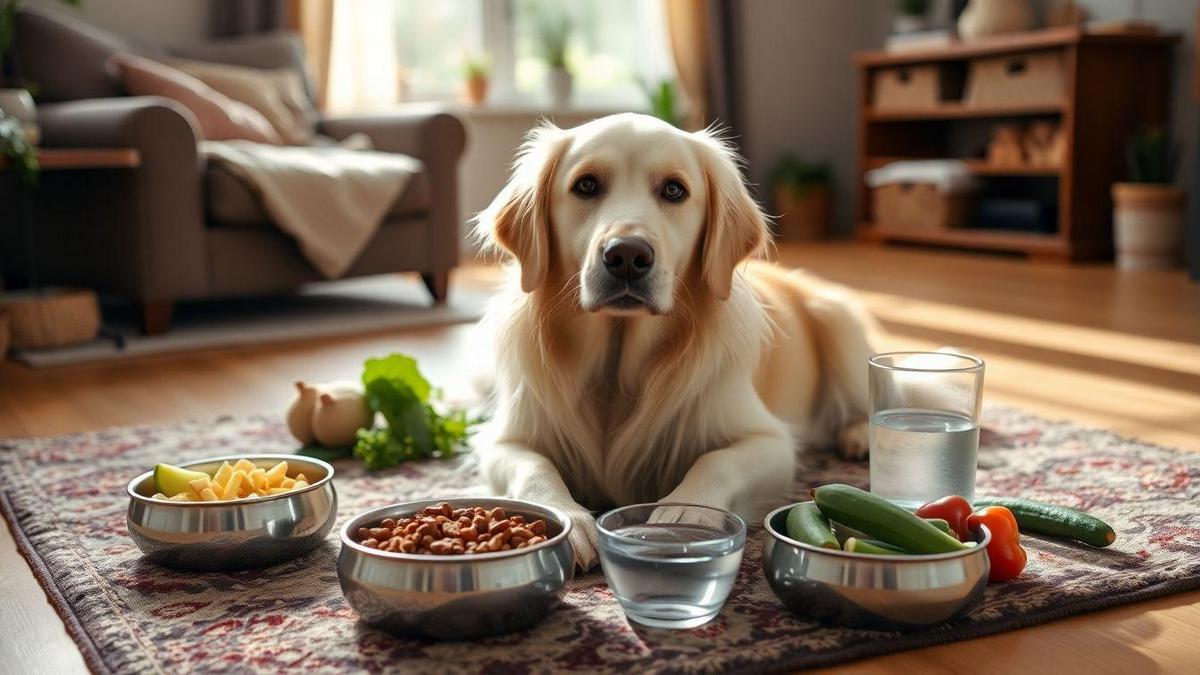
Special Diet for Senior Canines
As our dogs grow older, their nutritional needs change. It’s crucial to adapt their diet to keep them healthy and happy. This is especially true for senior dogs who may have special needs. Let’s explore some Nutrition Tips for Senior Dogs with Special Needs that can make a real difference.
Customized Diet Plans for Special Needs
Every senior dog is different. Some may have health issues like arthritis, kidney disease, or diabetes. These conditions often require a customized diet. Here’s how we can tailor their meals:
- High-quality protein: Older dogs need protein to maintain muscle mass. Look for dog foods that list meat as the first ingredient.
- Healthy fats: Omega-3 fatty acids can help with joint health and improve skin and coat condition.
- Fiber: Adding fiber can aid digestion and help maintain a healthy weight.
- Low sodium: For dogs with heart issues, a low sodium diet is essential.
| Nutritional Component | Importance | Examples |
|---|---|---|
| High-quality protein | Maintains muscle mass | Chicken, fish, lamb |
| Healthy fats | Supports joints | Fish oil, flaxseed oil |
| Fiber | Aids digestion | Pumpkin, sweet potatoes |
| Low sodium | Heart health | Specially formulated dog food |
Foods to Avoid for Senior Dogs
Just as there are foods that can help our senior dogs, there are also those we need to keep off their plates. Some foods can be harmful or even dangerous. Here’s a quick list of what to avoid:
- Chocolate: Toxic to dogs, even in small amounts.
- Onions and garlic: Can damage red blood cells.
- Grapes and raisins: Can cause kidney failure.
- High-fat foods: Can lead to pancreatitis.
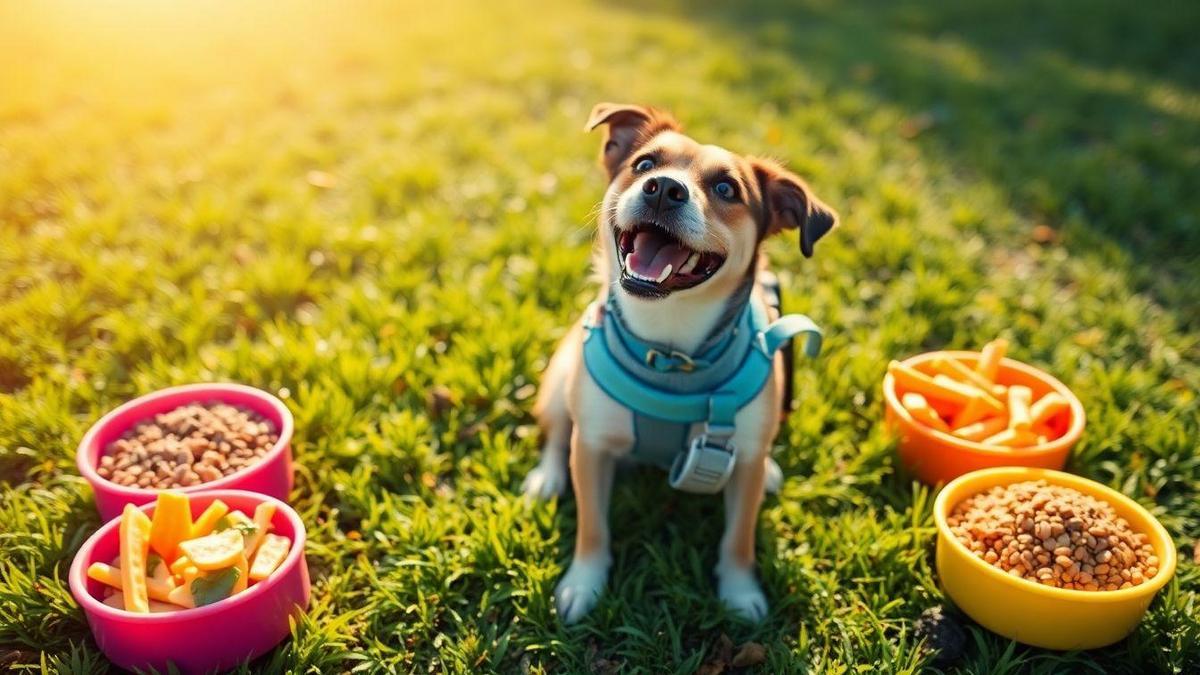
Tailored Nutrition for Disabled Dogs
Unique Nutritional Needs for Dogs with Disabilities
When we think about our furry friends, especially those facing challenges, we realize that their nutritional needs can differ significantly. Dogs with disabilities often require a specialized diet to support their health and comfort. This can include everything from higher protein content for muscle maintenance to added fiber for digestive health.
For instance, if our beloved pup has mobility issues, they might not be as active as they once were. This means we need to pay close attention to their caloric intake to prevent weight gain. We want to keep them healthy and happy, right? Here’s a quick look at some common nutritional needs for dogs with disabilities:
| Nutritional Aspect | Importance |
|---|---|
| Protein | Supports muscle maintenance and repair |
| Fiber | Aids digestion and helps maintain a healthy weight |
| Omega-3 Fatty Acids | Reduces inflammation and supports joint health |
| Vitamins & Minerals | Boosts overall health and immune function |
Adjusting Diets for Mobility Issues
Adjusting our dog’s diet can feel like a puzzle at times, but it’s crucial for their well-being. If they are having trouble moving around, we might want to consider soft food options that are easier to chew and digest. Think about it—if we were struggling with mobility, we wouldn’t want to fight with tough kibble!
We can also look for low-calorie treats to keep their weight in check while still giving them a little something special. Adding joint supplements can also be beneficial. These often come in tasty forms, so our dogs won’t even know they’re getting a little extra help.
Ensuring Comfort Through Proper Nutrition
Comfort is key, especially for our furry friends with special needs. Proper nutrition plays a huge role in their comfort levels. We can make mealtime enjoyable by providing a variety of textures and flavors. Mixing wet and dry food can keep things interesting and appealing. For more on this topic, see our article on the best diet for your dog’s age and activity level.
Additionally, keeping their meals consistent in timing can help with their routine. Dogs thrive on routine, and having a set mealtime can bring a sense of normalcy to their day.
Incorporating these Nutrition Tips for Senior Dogs with Special Needs can make a world of difference. A well-fed dog is a happy dog, after all!
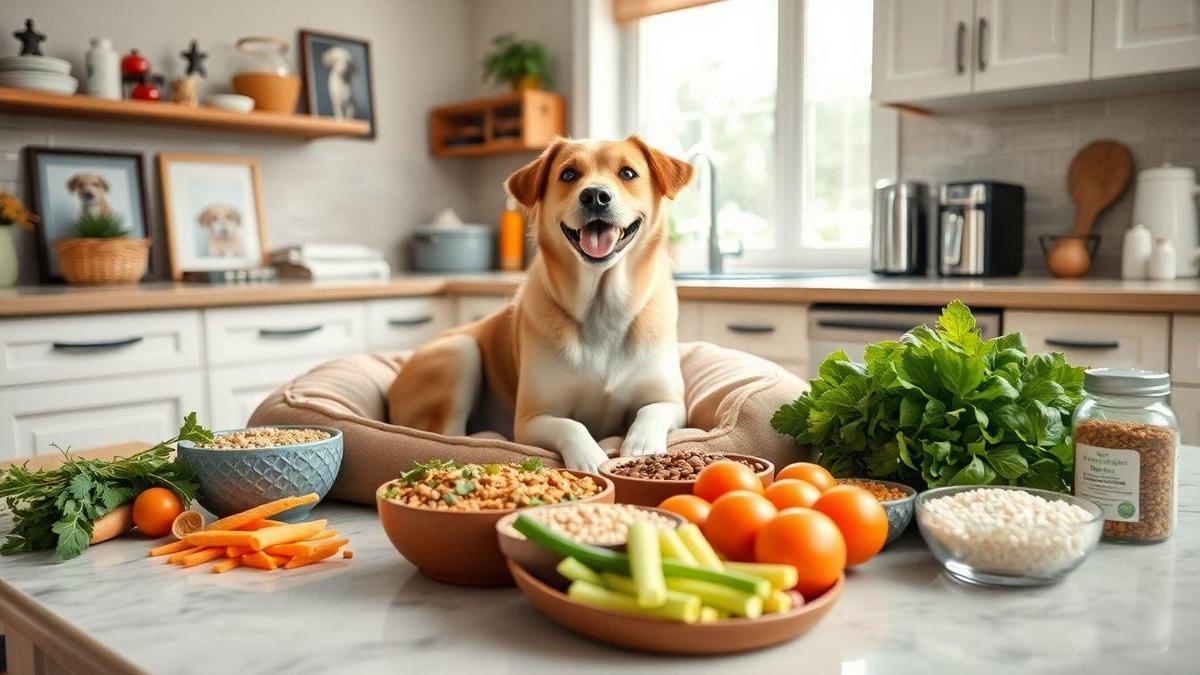
Senior Dog Nutrition Advice
Regular Vet Check-Ups for Nutritional Needs
When it comes to our senior dogs, regular vet check-ups are crucial. These visits help us understand our furry friends’ changing nutritional needs. As dogs age, their bodies go through various changes that can affect what they need to eat. For instance, some may require a diet lower in calories, while others might need more fiber to help with digestion. For more on this, visit our article on common dog health problems.
During these check-ups, our vet can recommend the best food options tailored to our dog’s health. They can also spot any potential issues early on. So, let’s make it a habit to schedule those vet visits and keep our senior pups feeling their best!
Monitoring Changes in Appetite and Weight
We know our dogs better than anyone else, so it’s essential to keep an eye on their appetite and weight. Changes in these areas can signal health problems. If our dog suddenly stops eating or starts to eat more than usual, it’s time to take notice.
Weight loss can be a sign of underlying issues, while weight gain can lead to other health problems. Keeping track of these changes can help us catch any issues before they become serious.
Keeping a Food Diary for Your Senior Dog
One great way to monitor our dog’s eating habits is to keep a food diary. This doesn’t have to be complicated; a simple notebook will do. We can jot down what and when our dog eats, along with any changes in behavior. Here’s a simple table to help us get started:
| Date | Food Type | Amount Eaten | Notes on Behavior |
|---|---|---|---|
| 01/01/2023 | Dry kibble | 1 cup | Normal energy, happy |
| 01/02/2023 | Wet food | 1/2 cup | Less interested in food |
| 01/03/2023 | Dry kibble | 1 cup | Back to normal |
By keeping this diary, we can spot patterns and share them with our vet. This way, we can make informed decisions about our dog’s nutrition.
Conclusion
In wrapping up our discussion on Nutrition Tips for Senior Dogs with Special Needs, we hope we’ve shed some light on how to best care for our aging furry companions. It’s clear that as our dogs grow older, their nutritional needs evolve, and it’s our responsibility to adapt their diets accordingly. By focusing on high-quality ingredients, staying vigilant about their health issues, and consulting with our vets, we can ensure our senior pups enjoy their golden years to the fullest.
Let’s remember that every little effort counts. From choosing the right foods to monitoring their hydration, we play a vital role in their health and happiness. So, let’s keep our eyes peeled for any changes in their behavior and appetite, and always strive to provide the best care possible.
If you’re hungry for more insights and tips about caring for our beloved pets, don’t hesitate to check out more articles at Redeversatil. Together, let’s make sure our senior dogs live their best lives!
Frequently asked questions
What are some Nutrition Tips for Senior Dogs with Special Needs?
We should give our senior dogs a balanced diet. Focus on high-quality proteins and healthy fats. Add fiber for digestion. Consider their specific needs, like joint support or weight management.
How can I tell if my senior dog has special nutritional needs?
If our dog is losing weight, eating less, or has health issues, it may need special food. We should watch for signs like trouble walking or changes in behavior. A vet can help us identify these needs.
Are there specific ingredients to avoid for senior dogs?
Yes, we should steer clear of foods with too many fillers like corn or soy. Artificial colors and preservatives are also no good. It’s best to keep our dog’s diet natural and healthy.
How often should we feed our senior dog with special needs?
Feeding smaller meals more often can help. We can give our dog two to three meals a day. It can reduce stress on their stomach and make digestion easier for them.
